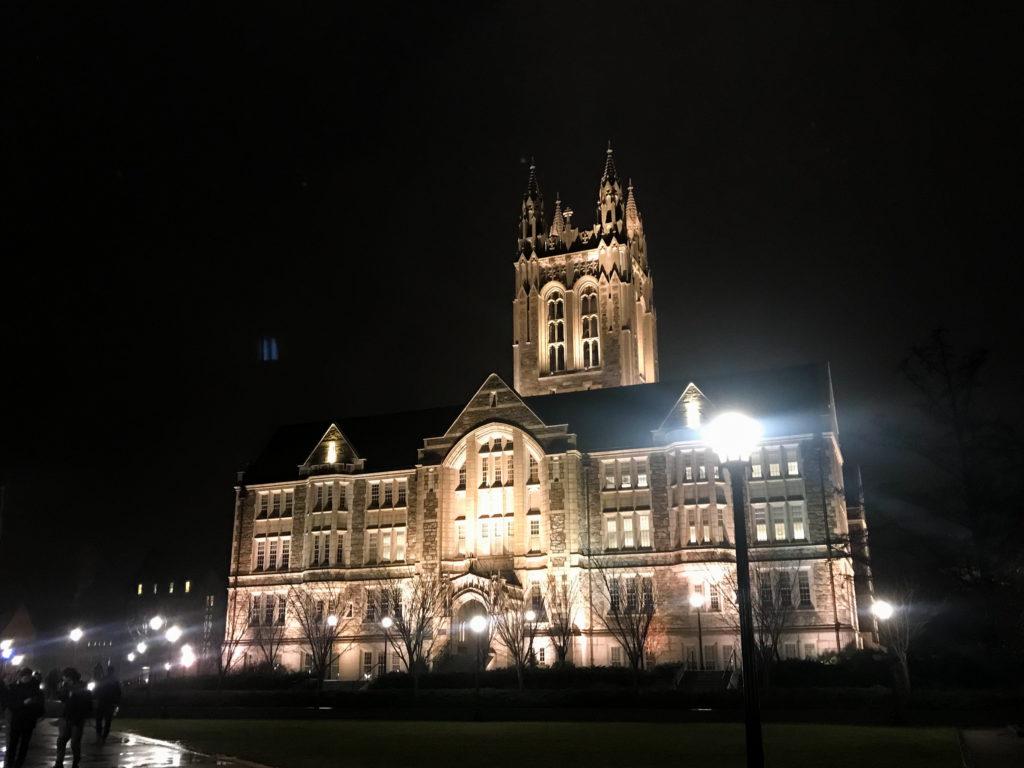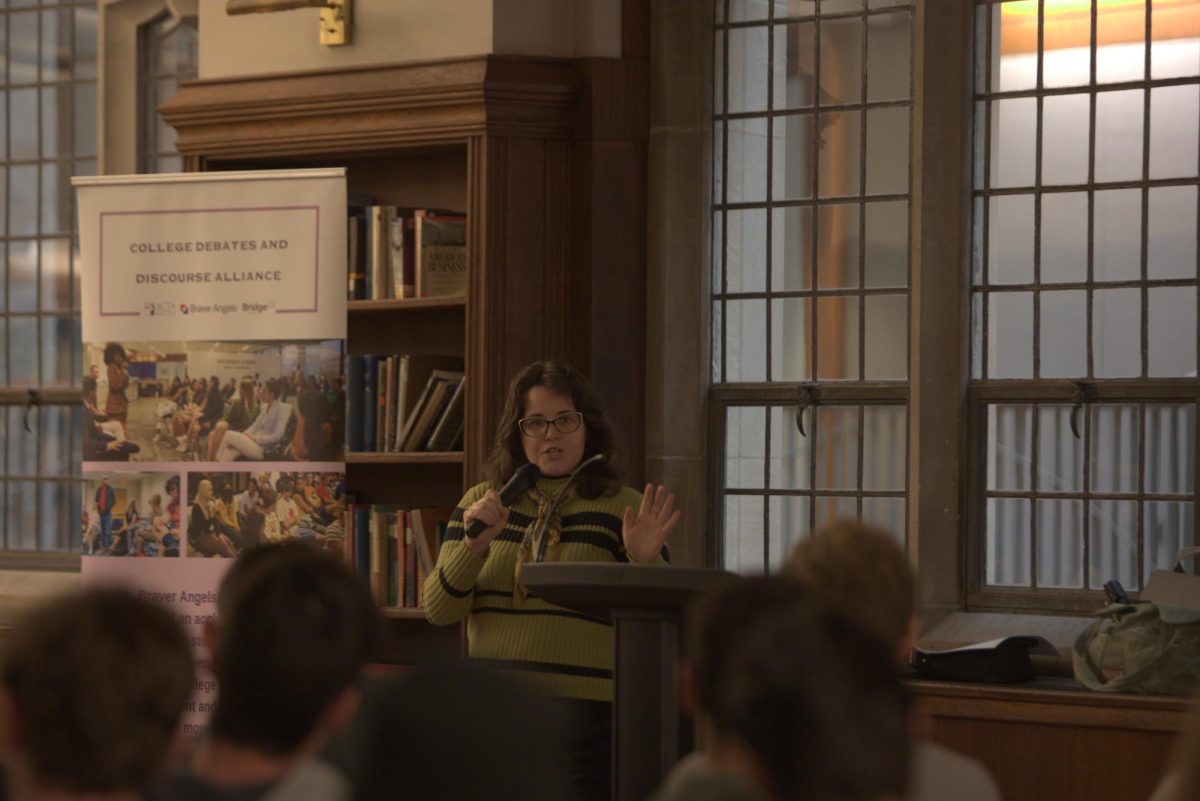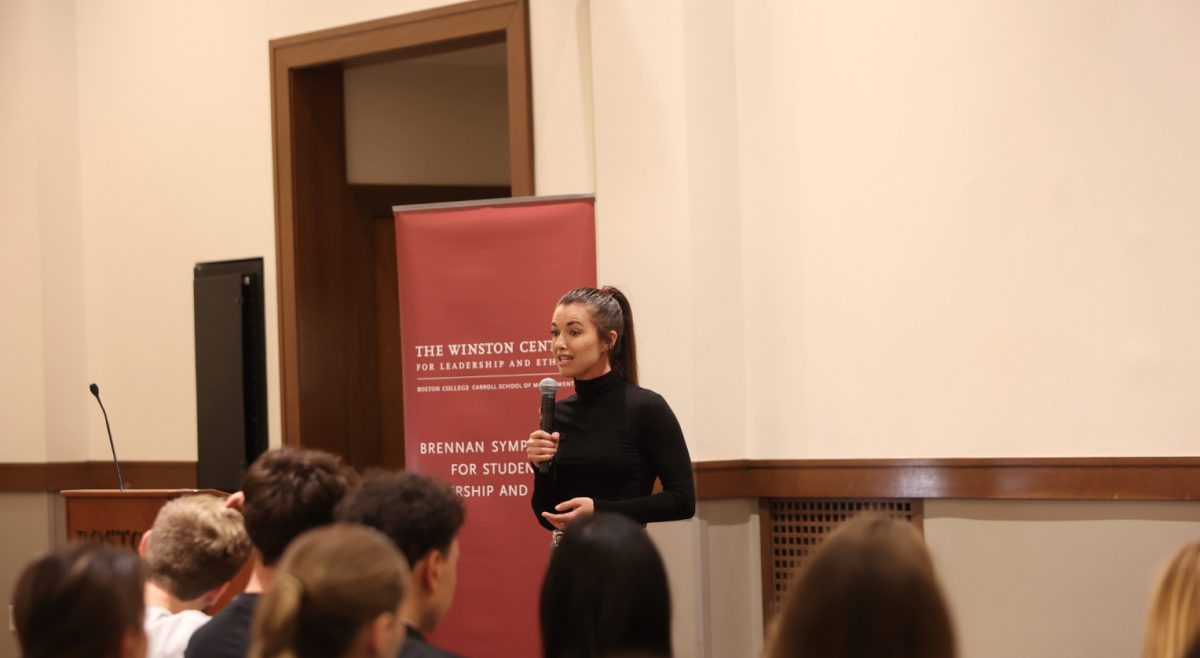Four Boston College faculty members discussed reconciling their faith with an issue-laden church in a panel titled “Catholic Belonging in a Time of Scandal,” sponsored by the theology department, Jesuit Institute, C21 Center, and Undergraduate Government of Boston College, on Monday.
Theology professor Stephen J. Pope moderated the panel and introduced the main speakers: associate philosophy professor Marina McCoy, theology professor Richard Gaillardetz, and philosophy professor Kerry Cronin. The group discussed their views on the recent sex abuse scandal within the Catholic Church that was outlined in the 2018 Pennsylvania Grand Jury Report and specifically delved into why and how they have remained Catholic in the wake of church scandal.
McCoy began the event by laying out why she believed the issue had more to do with larger societal questions than questions strictly pertaining to the church.
“For me, it’s a question of how do people belong to the human community, of all different kinds of communities, knowing what humans can be like,” McCoy said. “We live in communities where the people around us are gifted and the people around us are deeply flawed.”
Gaillardetz discussed the scandal in terms of going to a restaurant where the chef promises nourishing and delightful dishes, but the wait staff is preoccupied with questioning the customers’ status and arguing about who gets to wait on the most lucrative table.
“It turns out the chef is not real thrilled with this crew either, so the chef finds other ways to make sure that you do get the dishes that he has,” he said. “So you continue to come back, not because of the quality of service, but the food.
“And so at the end of the day, we consent to be troubled by the failings of the church, we consent to be troubled by its institutional dysfunctions, and we are determined to do everything we can to address those things.”
Cronin closed by talking about how she reconciles her outrage with her faith in the church. She acknowledged that in agreeing to be part of a religious community, she is accepting teachings that may not personally resonate with her, and is trusting in the clery of the institution.
“I am, in a terrified way, remaining a part of the Catholic community, and I am scared,” she said. “And I presume that you [all] are there too, that you’re pretty scared as well. But I hope we can continue to have a conversation about it and spread our ability to love.”
Following the three professors’ speeches, Pope encouraged audience members to turn to the person next to them and discuss their thoughts before asking questions of the three speakers.
One group of students asked about how to reconcile the challenge to grow with the church from the issues plaguing it and a scandal that brings into serious question the moral standing of the institution.
“Can I love humanity in the way that God loves humanity?” McCoy said. “Can I love other people? Can I ever be faithful to the community that grew that kind of imperfection? So in that sense I think we do grow. That doesn’t mean we should not ask the church or community to be better. I think we should.”
Pope agreed, saying that loving humanity doesn’t mean that predators’ actions should be tolerated, but concentrating on compassion and justice is tantamount to the church’s growth—casting one’s eyes toward the future rather than reflecting on past mistakes is a part of faith.
To illustrate this and close out the question and answer section of the panel, Cronin described the day she saw a photo in The Boston Globe of Cardinal Bernard Law kissing the ring of the pope after being accused of covering up instances of child sexual abuse within the Archdiocese of Boston.
“I wept that day, and it wasn’t because it was a great ‘gotcha’ photo, but because it happened,” she said.
Pope wrapped the event up by talking about how to separate issues plaguing the church from the positive aspects of the entity. He noted that the Church is not the same as its clergy. Though the majority of clergymen have not committed crimes, the action of clergymen shouldn’t dilute the greater meaning Catholicism brings into the lives of its believers. Then, Pope noted that despite the necessary separation of the Church’s mission from the individuals carrying it out rightly or wrongly, the Church still needs to change.
“It has to change the institutions that make clerical sexual abuse possible, and even more, the ones that make cover-up possible,” Pope said. “We all recognize the need for change.
“With these three panelists, you see people who love the church and who are troubled by what’s happening in their community. There are a lot of good people who care, who are hoping there will be change, and will change the church over the coming years and decades.”
Featured Image by Celine Lim / Heights Editor













